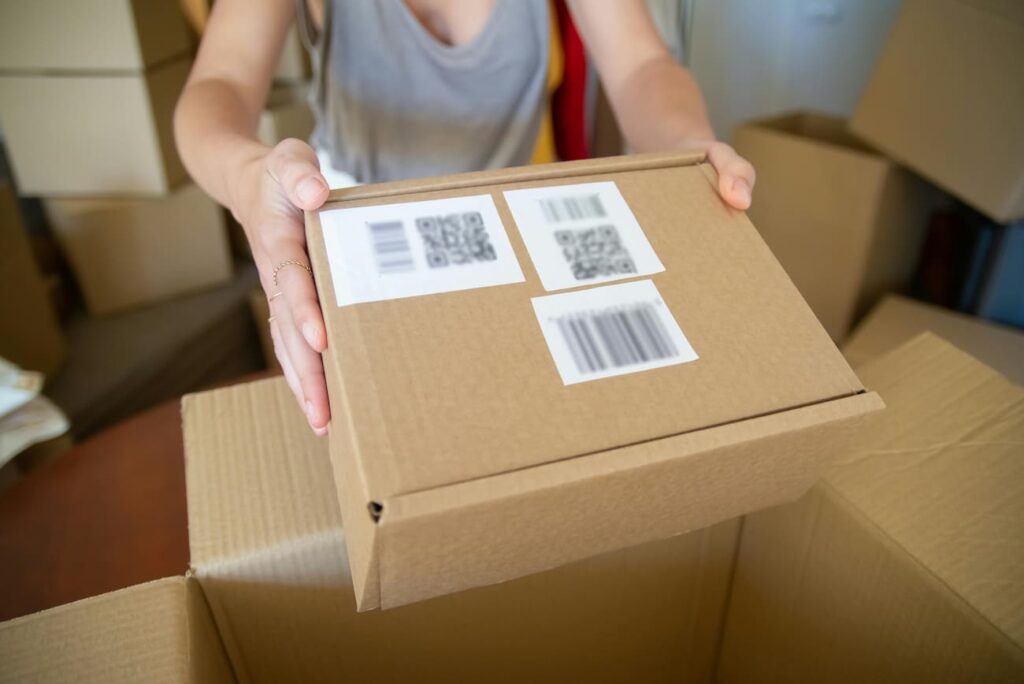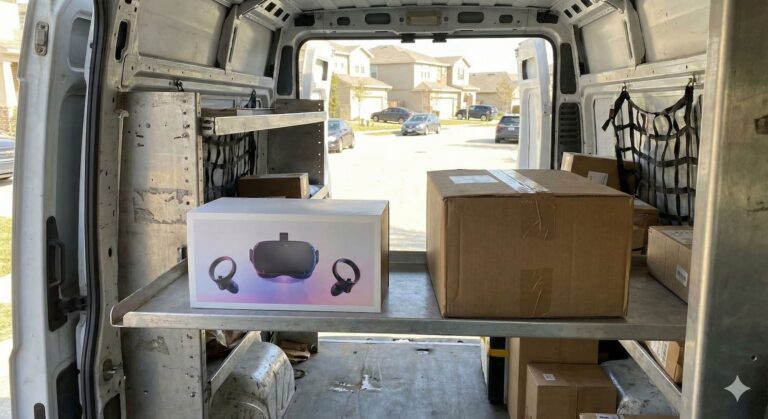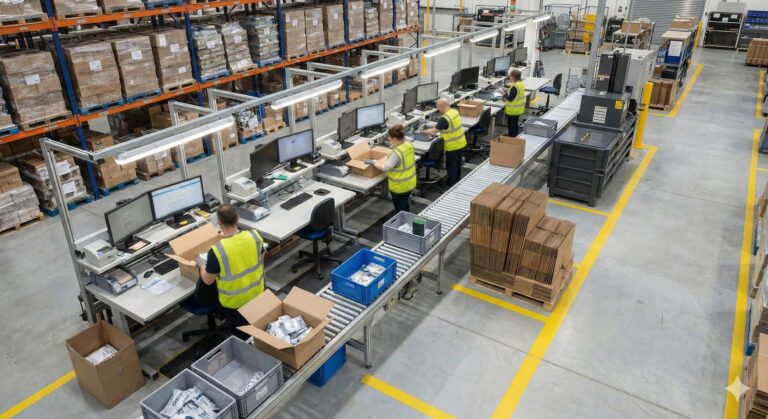Scaling an eCommerce business comes with a unique set of logistical challenges.
As order volumes surge, inventory management becomes complex, and customer expectations for fast, reliable delivery rise. It’s a balancing act that can make or break your growth.
To help you navigate this, we’re looking at actionable logistics strategies for scalable eCommerce growth. We’ll cover key areas like inventory optimization, streamlined shipping, and strategic partnerships, all designed to help your business scale effectively.
The eCommerce Scaling Challenge

Scaling an eCommerce business isn’t just about increasing sales; it’s about managing a surge in operational complexity. The logistics backbone of your business will be tested, and understanding the core challenges is the first step towards building a robust strategy.
The Impact of Rapid Growth on Logistics
When your business takes off, your logistics operations feel the pressure immediately. Handling that growth smoothly requires careful planning.
Increased order volume and complexity: More orders mean more moving parts. You’ll face challenges in picking, packing, and labeling, especially when dealing with a diverse product range.
Inventory management hurdles: Keeping track of stock across multiple locations or channels can become a nightmare. Overstocking ties up capital, while understocking leads to lost sales and frustrated customers.
Shipping and delivery pressures: Customers expect fast and reliable delivery. Delays or errors can damage your reputation and lead to negative reviews. 85% of online shoppers say that a poor delivery experience would prevent them from ordering from that online retailer again.
Common Mistakes to Avoid
Many businesses stumble when scaling their logistics. Recognizing common mistakes can save you time and money.
Overlooking technology integration: Manual processes become inefficient as you grow. Failing to integrate your eCommerce platform with your WMS or shipping software leads to errors and delays.
Neglecting customer experience in delivery: Delivery is a crucial part of the customer journey. A lack of tracking updates, flexible delivery options, or efficient return processes can lead to dissatisfaction.
Underestimating the need for flexibility: Market demands change rapidly. Your logistics strategy must be adaptable to handle unexpected spikes in demand or disruptions in the supply chain.
Foundational Logistics Strategies for eCommerce Growth
Building a solid logistics foundation is essential for sustainable eCommerce growth. It’s about setting up systems and processes that can scale with your business while maintaining efficiency and customer satisfaction. Implementing these strategies early can prevent costly disruptions down the line.
Optimizing Inventory Management
Efficient inventory management is the backbone of a smooth eCommerce operation. It’s about having the right products, in the right place, at the right time. Here’s how to optimize your inventory management:
Implement a Warehouse Management System (WMS): A WMS helps you track inventory in real time, optimize storage, and streamline picking and packing. This reduces errors and improves order accuracy.
Utilize demand forecasting tools: Predicting future demand allows you to stock inventory appropriately, preventing both stockouts and overstocking. Accurate forecasting is key to efficient resource allocation.
Strategic placement of inventory: Consider placing inventory closer to your customer base. This reduces shipping times and costs, improving delivery speed and customer satisfaction.
Streamlining Shipping and Fulfillment
Fast and reliable shipping is a major driver of customer satisfaction. Streamlining your fulfillment process can give you a competitive edge:
Diversify carrier partnerships: Relying on a single carrier can be risky. Having multiple carrier options allows you to choose the best service and price for each shipment.
Offer multiple shipping options: Providing customers with choices, such as expedited or standard shipping, increases satisfaction. It also allows them to control their delivery costs.
Implement automated fulfillment processes: Automation, such as automated packing and labeling, reduces manual errors and speeds up order processing. This is especially important as order volumes increase.
Leveraging Technology for Efficiency
Technology is a powerful tool for optimizing logistics operations. Integrating the right systems can significantly improve efficiency and reduce costs:
Integrate systems: Seamless integration between your eCommerce platform, WMS, and shipping software eliminates manual data entry and reduces errors.
Utilize data analytics for decision-making: Data analytics provides valuable insights into inventory levels, shipping times, and customer preferences. This information can be used to optimize processes and make informed decisions.
Explore automation and robotics: Automation and robotics can streamline warehouse operations, improve accuracy, and reduce labor costs. This is particularly beneficial for high-volume operations.
Scaling for eCommerce Customer Satisfaction

Happy customers are repeat customers, and a well-executed logistics strategy can be a key differentiator.
Enhancing the Delivery Experience
The delivery experience is the final touchpoint with your customer. Making it positive is important for building loyalty. Here’s how you can enhance the delivery experience:
Provide real-time tracking and updates: Customers want to know where their orders are. Offering accurate, up-to-date tracking information reduces anxiety and improves satisfaction.
Offer flexible delivery options: Allowing customers to choose delivery dates, times, or pickup locations provides convenience and control. This flexibility can significantly enhance their overall experience.
Manage returns effectively: A smooth return process is essential. Clear return policies, easy-to-use return portals, and prompt refunds build trust and encourage repeat business.
Building a Customer-Centric Logistics Approach
A customer-centric approach means putting the customer’s needs at the forefront of your logistics strategy. This leads to higher satisfaction and loyalty. Consider building a customer-centric approach to logistics:
Personalize shipping options: Tailoring shipping options based on customer preferences or order history can create a more personalized experience.
Proactive order status communication: Keeping customers informed about their order status at every stage of the process reduces uncertainty and builds trust. Automated notifications can keep clients informed.
Gather and act on customer feedback: Regularly collecting feedback on your logistics performance allows you to identify areas for improvement. Acting on this feedback shows customers that you value their opinions and are committed to providing a better experience.
Strategic Partnerships and Outsourcing Logistics
Scaling your eCommerce logistics doesn’t always mean building everything in-house. Strategic partnerships and outsourcing can provide access to expertise and resources that accelerate growth. Collaborating with the right partners allows you to focus on core competencies while ensuring your logistics operations run smoothly.
The Role of 3PL Providers
Third-party logistics (3PL) providers offer specialized logistics services, allowing businesses to offload complex tasks. This can be especially useful for companies experiencing rapid growth. Outsourcing to a 3PL can streamline operations and improve efficiency.
The benefits of outsourcing logistics functions include reduced overhead costs, access to advanced technology, and improved scalability. Selecting the right 3PL partner requires careful consideration of their experience, capabilities, and alignment with your business goals.
For example, a 3PL with a strong presence in Indianapolis can offer strategic advantages for businesses operating in the Midwest. Examples of services that 3PL providers offer include warehousing, fulfillment, inventory management, and transportation.
Building Strong Carrier Relationships
Strong relationships with shipping carriers are essential for reliable and cost-effective delivery. These partnerships can significantly impact your customer satisfaction and profitability.
Negotiating favorable shipping rates is crucial for controlling costs, especially as order volumes increase. Ensuring reliable delivery performance requires selecting carriers with proven track records and robust networks. Maintaining open communication with carriers allows you to address issues proactively and optimize shipping strategies.
Future-Proofing Your eCommerce Logistics Strategy

The eCommerce landscape is constantly evolving, and your logistics strategy must adapt to stay competitive. Anticipating future trends and embracing innovation is crucial for long-term success.
Adapting to Market Trends
Staying ahead of emerging market trends ensures your logistics operations remain relevant and efficient. Consumer expectations and global changes require constant attention.
Sustainable logistics practices: Consumers are increasingly concerned about environmental impact. Implementing eco-friendly packaging, optimizing delivery routes to reduce emissions, and exploring alternative fuel options are becoming essential.
Same-day and next-day delivery: Meeting customer expectations for fast delivery requires strategic warehouse placement and efficient delivery networks. Businesses near major hubs may have an advantage here.
International expansion: If your business plans to expand globally, you must consider international shipping regulations, customs procedures, and varying customer expectations.
Continuous Improvement and Innovation
Innovation and continuous improvement are essential for maintaining a competitive edge. Embracing new technologies and regularly optimizing processes can lead to significant gains.
Regularly review and optimize processes: Regularly analyzing your logistics operations helps identify bottlenecks and areas for improvement. Implementing process changes and leveraging data-driven insights can enhance efficiency.
Invest in emerging logistics technologies: Exploring and investing in technologies like AI-powered route optimization, drone delivery, and blockchain for supply chain transparency can provide a competitive advantage.
Use KPIs to measure success: Tracking KPIs, such as on-time delivery rates, inventory turnover, and shipping costs, provides valuable insights into your logistics performance. These metrics allow you to quantify success and identify areas for optimization.
Scaling eCommerce with Smart Logistics
By focusing on strategic inventory management, streamlined shipping, and prioritizing the customer experience, you can build a logistics foundation that supports sustainable growth. Flexibility and continuous improvement are key to adapting and scaling to the ever-changing eCommerce industry.
For businesses looking to enhance their distribution networks and optimize their fulfillment operations, specialized partners can offer valuable insights and support.
We’ve partnered with companies in the retail and eCommerce industries to provide personalized logistics solutions, helping them navigate these challenges and achieve their growth objectives.



